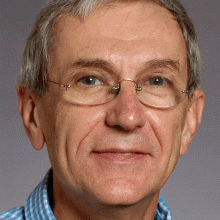Distributed Interference: Topology Optimization
We study a number of problems of practical interest regarding the topology of a sensor network in order to guarantee the convergence, and minimize the communication required, in distributed inference. We cast the topology design in the context of spectral graph theory and show that this combinatorial question translates into optimizing spectral graph properties. With noiseless communication channels among sensors, and under constraints on the number of communication channels and on the network power budget, we show that the optimal topology for the sensor network is a Ramanujan graph. When the communication is noisy, we show that there is an optimal number of iterations for distributed inference. When the communication channels fail with a nonzero probability, we provide necessary and sufficient conditions for mean square convergence of the distributed inference algorithm. Finally, given a matrix of communication costs among sensors, we show that the design of the network topology that minimizes the overall network communication cost is an SDP optimization problem. Simulation studies illustrate our analysis and results.

Dr. José Moura
Professor of Electrical and Computer Engineering, Carnegie Mellon University on March 2, 2007 at 1:00 PM in Engineering Building II, Room 1229
José M. F. Moura is a Professor of ECE at CMU and founding co-director of CenSCIR, the Center for Sensed Critical Infrastructure Research. In 2006-07, he is on sabbatical at MIT as a Visiting Professor of EECS. He holds MSc, EE, and D.Sc. EECS degrees from MIT and an EE degree from Instituto Superior Técnico (Lisbon, ). His interests are in algebraic and statistical signal/ image processing. His current research includes distributed decision in sensor networks, time reversal imaging, SPIRAL, an intelligent compiler for signal processing transforms, and bioimaging.
He serves as President Elect for the IEEE Signal Processing Society (SPS), and has served on the Editorial Board of the IEEE Proceedings and of the ACM Sensors Journal, on several IEEE Boards, and on the steering committee of the IEEE International Symposium on BioImaging (ISBI) and the ACM/IEEE International Symposium on Information Processing and Sensor Networks (IPSN). He was the Editor in Chief for the IEEE Transactions on Signal Processing. He is a Fellow of the IEEE, a Fellow of AAAS, and a corresponding member of the Academia das Ciências of Portugal. He received the IEEE 3rd Millennium Medal, the IEEE SPS Meritorious Service Award, and the 2007 CIT (College of Engineering at CMU) Outstanding Research Award.
The Department of Electrical and Computer Engineering hosts a regularly scheduled seminar series with preeminent and leading reseachers in the US and the world, to help promote North Carolina as a center of innovation and knowledge and to ensure safeguarding its place of leading research.
